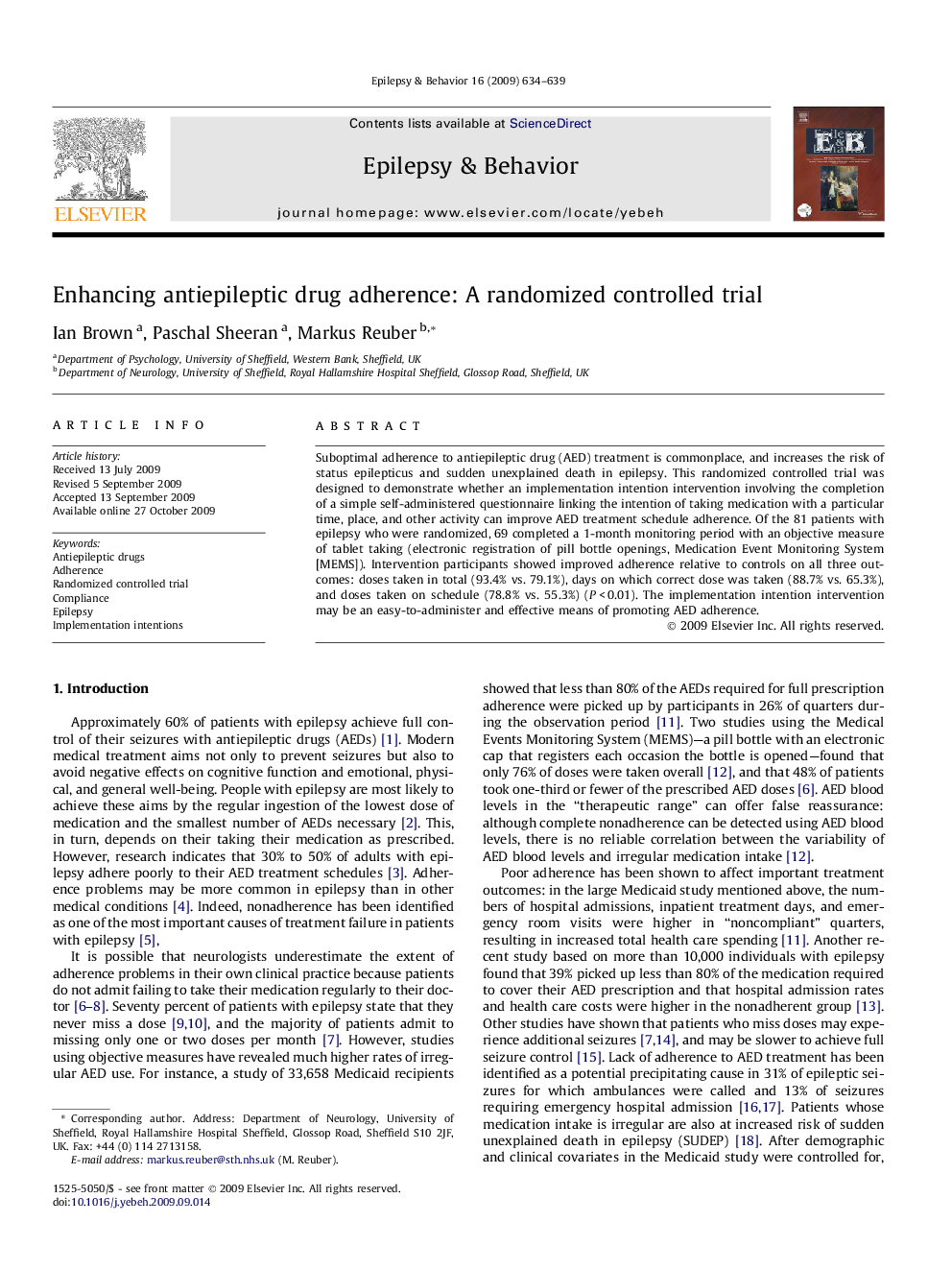| Article ID | Journal | Published Year | Pages | File Type |
|---|---|---|---|---|
| 3050886 | Epilepsy & Behavior | 2009 | 6 Pages |
Suboptimal adherence to antiepileptic drug (AED) treatment is commonplace, and increases the risk of status epilepticus and sudden unexplained death in epilepsy. This randomized controlled trial was designed to demonstrate whether an implementation intention intervention involving the completion of a simple self-administered questionnaire linking the intention of taking medication with a particular time, place, and other activity can improve AED treatment schedule adherence. Of the 81 patients with epilepsy who were randomized, 69 completed a 1-month monitoring period with an objective measure of tablet taking (electronic registration of pill bottle openings, Medication Event Monitoring System [MEMS]). Intervention participants showed improved adherence relative to controls on all three outcomes: doses taken in total (93.4% vs. 79.1%), days on which correct dose was taken (88.7% vs. 65.3%), and doses taken on schedule (78.8% vs. 55.3%) (P < 0.01). The implementation intention intervention may be an easy-to-administer and effective means of promoting AED adherence.
